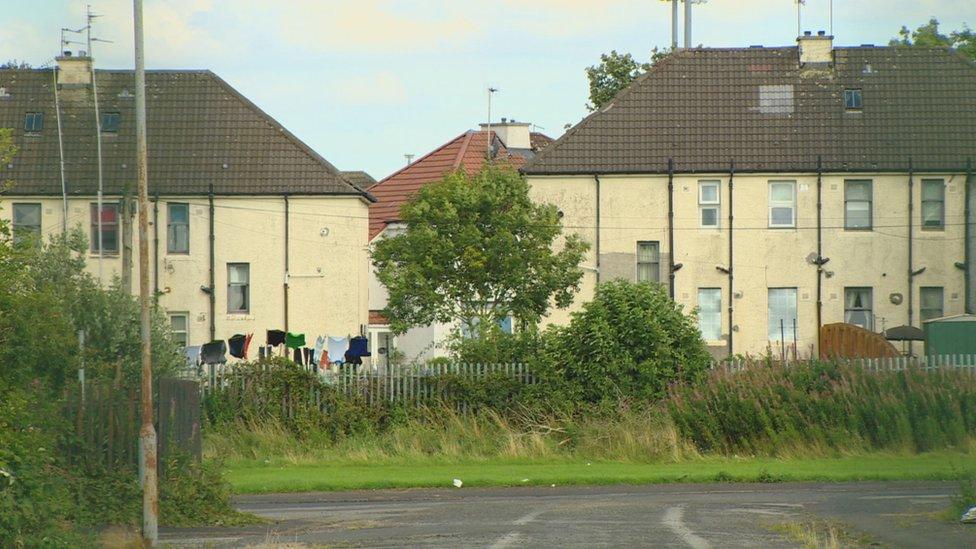Ferguslie Park: 'Things have changed' in Scotland's most-deprived area
- Published
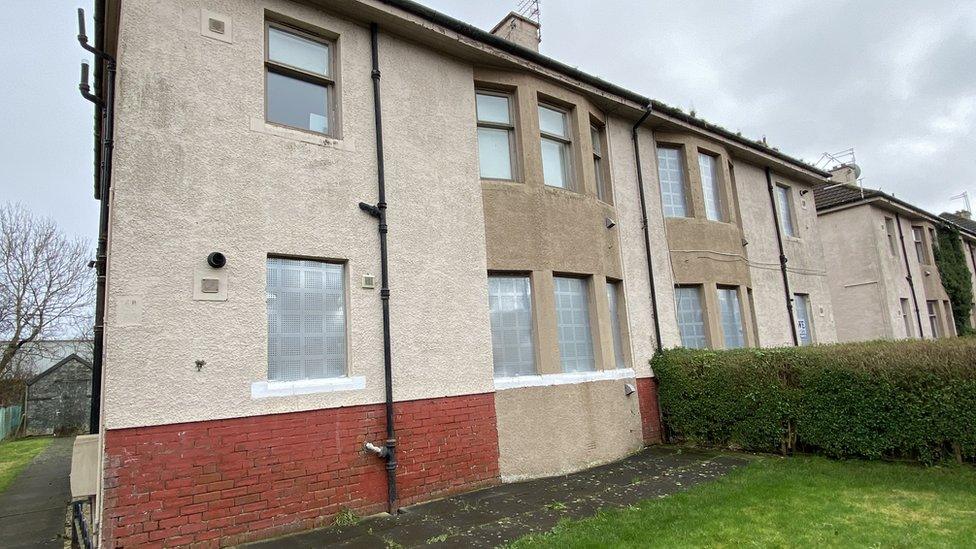
Ferguslie Park has been the most deprived part of Scotland in the previous two SIMD reports
Ferguslie Park in Paisley has twice been named the most-deprived area in Scotland. Has enough been done to avoid it heading the Scottish Index of Multiple Deprivation (SIMD) for a third time in a row?
The latest four-year SIMD update will be released on Tuesday. Since its introduction in 2003, it has ranked almost 7,000 local areas of Scotland on a deprivation scale based on factors including health outcomes, income, employment, education and crime.
Why was Ferguslie Park the most-deprived?
The area's troubled reputation rests on just a single data zone - that of the half-abandoned Tannahill scheme.
Four years ago there were 499 people living there but now even more of the homes are derelict ahead of a multi-million pound regeneration programme planned for the area.
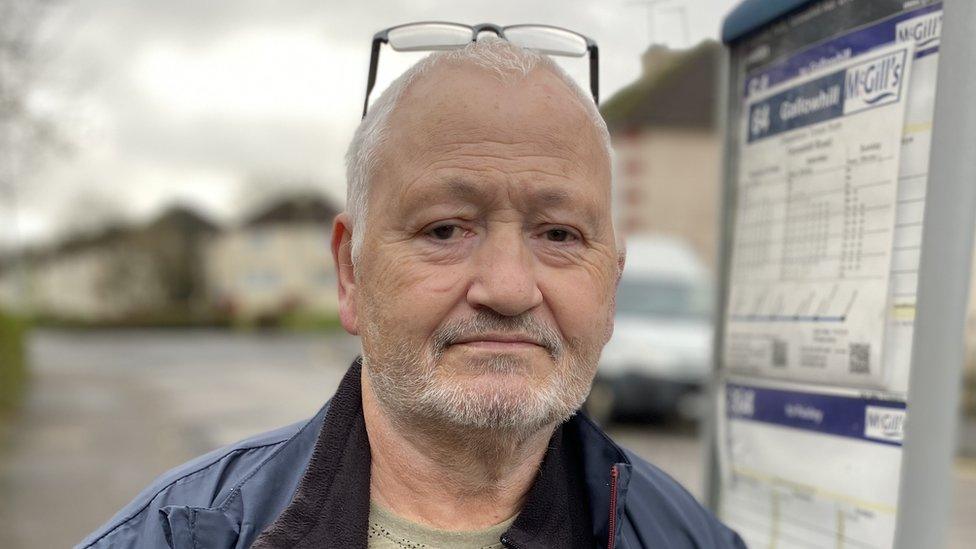
Thomas Taylor says it used to be a nice area
"The place is just a shambles now, compared to what it used to be," says retired labourer Thomas Taylor.
As the 65-year-old waits for a bus to Paisley, he says: "It used to be quite a nice area but it has just went to the dogs now. It's got to come down."
In the gardens of abandoned homes, Steven Donnelly, 42, can be found hunting for scrap metal to sell on for cash.
He tells BBC Scotland's The Nine he has addiction issues and spent time in prison after he was sucked into the 1990s drug culture that swept his community.
Steven studies rusted tools he found in a nearby shed. "I could clean these up, make them brand new and use them," he says.
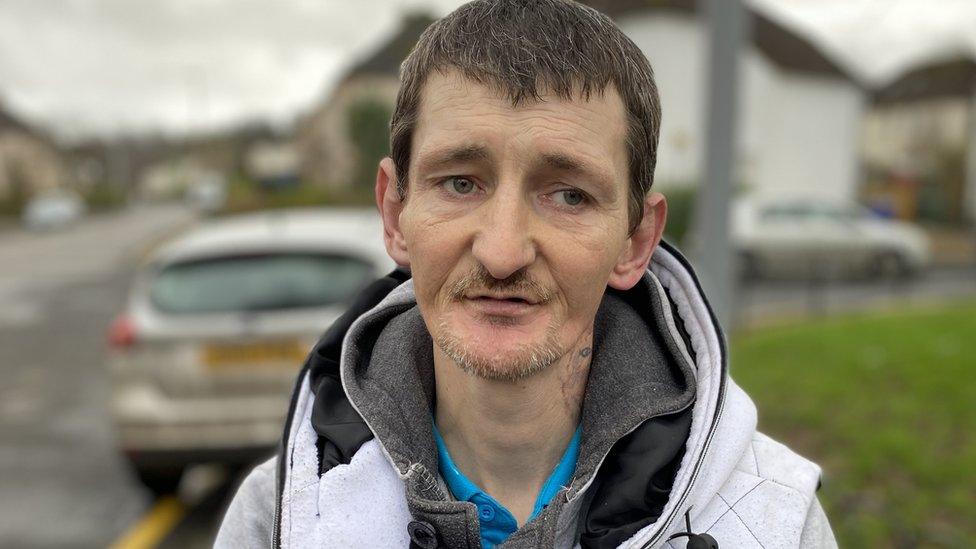
Steven Donnelly says there is a lot of violence and drugs
"It's a deprived area, know what I mean, and I'm on benefits.
"It's a terrible life living about here. All the violence, all the drugs, everything.
"The people were great but it was the usual, the same as every other place."
'Fantastic plans didn't come to fruition'
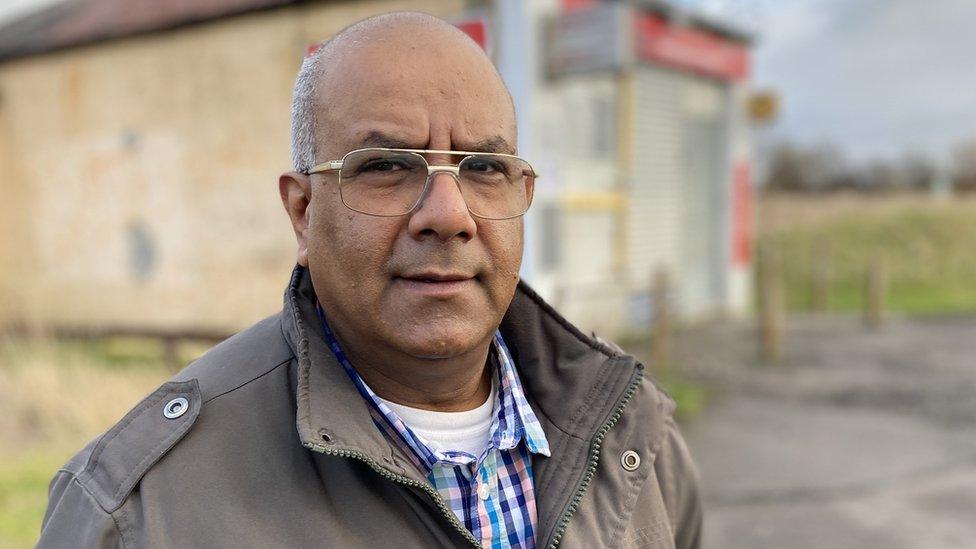
Hussan Lal had to close his shop as the housing scheme emptied
Renfrewshire Council plans to demolish many of the homes this year.
The Scottish government has committed to providing £6m for 101 new affordable homes.
However, change did not happen quickly enough for shopkeeper Hussan Lal, who ran the Usave convenience store on Ferguslie Park Avenue.
The 57-year-old hoped the nearby construction of St Mirren's football stadium in 2011 would lead to swift regeneration for the area.
"Fantastic plans didn't come to fruition," he says.
As Tannahill emptied, sales and footfall suffered, and it resulted in him closing the shop in December last year.
"I was devastated," he says. "Although it's a deprived area, people still want to do something positive about their lives. It is not the community causing the issues, it is the lack of investment."
'Another stick to beat us with'
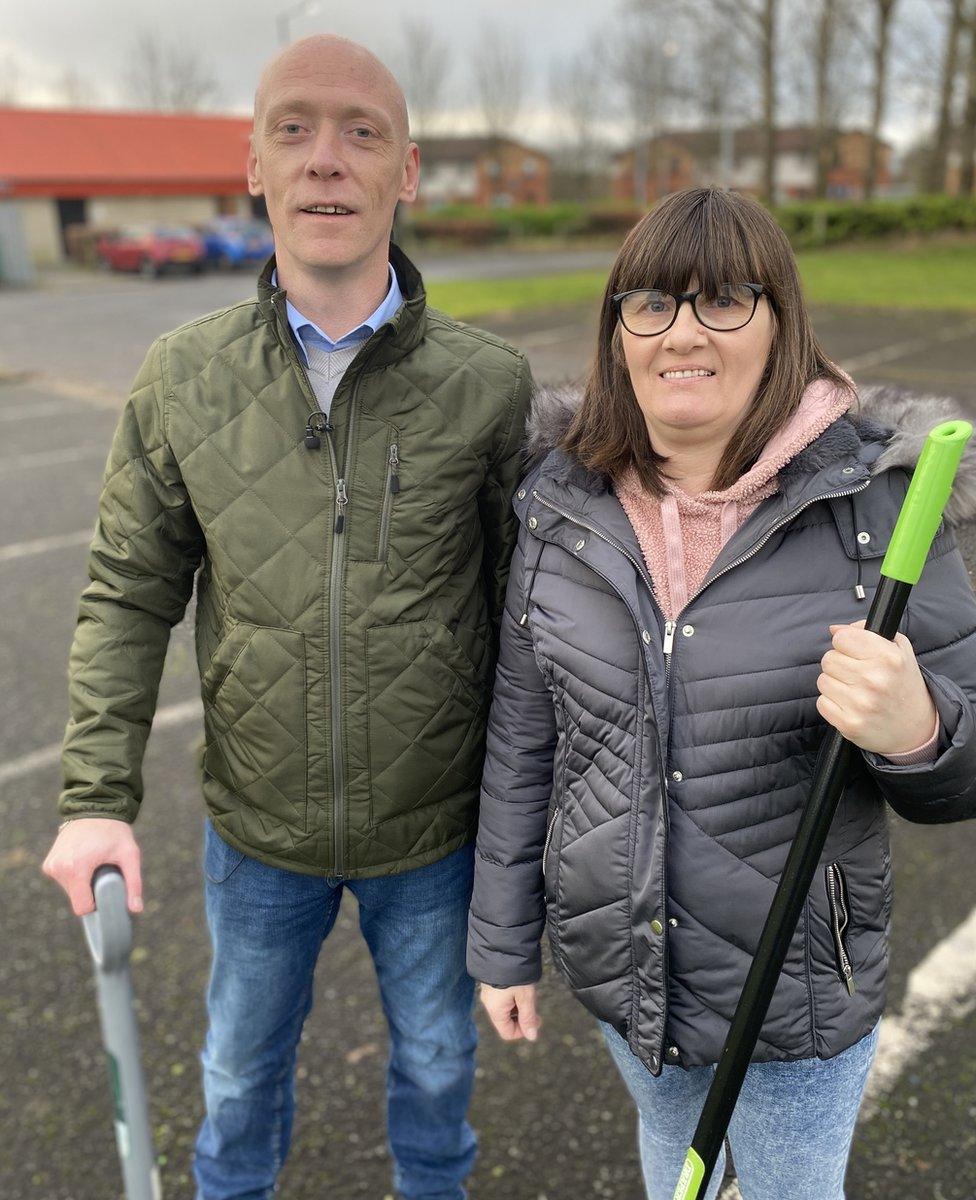
Community activists Terry McTernon and Mandy Chappell

While Tannahill skews perceptions of the area, the rest of Ferguslie Park - separated from Paisley by a railway line - is also among the top 5% most-deprived communities.
The area was hit hard by the decline in traditional industries, particularly the closure of the car factory in Linwood in 1981.
In 2016, its population was listed as 3,577, of which 62% were listed as income or employment-deprived.
The area has seen investment, with the council providing £5m on social policies to help tackle poverty in Ferguslie Park.
Local community groups have also received funding for engagement and to develop green spaces such as Glencoats Park.
Terry McTernon is a founding member of the new community council.
He says: "Ferguslie Park as a community has its issues, like another other community. But it is rich in a whole host of other areas.
"I think there grows a certain resilience and people think, 'Oh here is another stick to beat us with'.
"We know where the problems exist but we also know where the strengths exist as well."
'Things have changed'
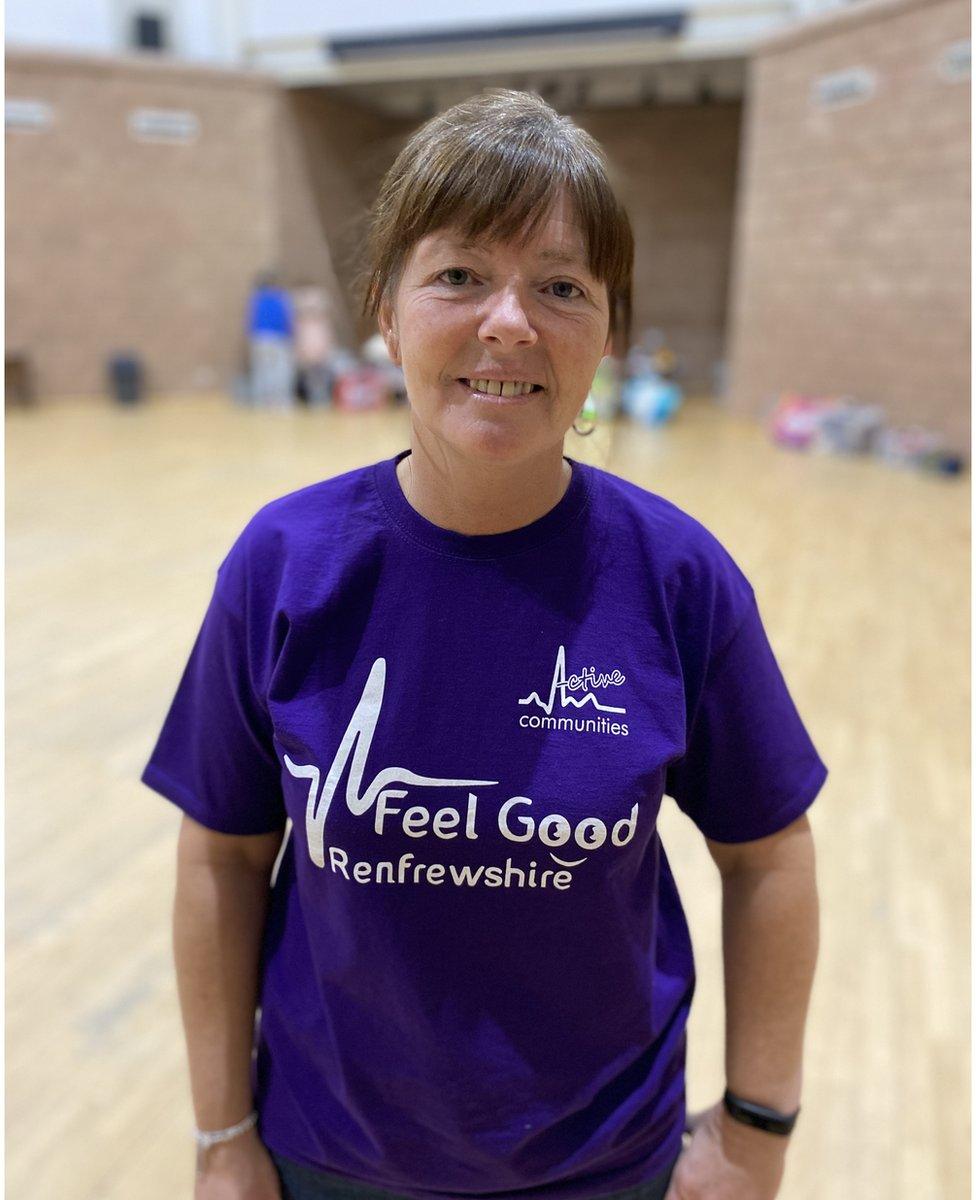
Karen Campbell runs a food and clothing bank at the community hub

Crime remains an issue in Ferguslie Park. While drugs offences have fallen by 25%, violent crimes have risen by 40% since the SIMD was last published in 2016. Crimes of dishonesty are also up by 28%.
Meanwhile, two-thirds of tenants at Ferguslie Park Housing Association are receiving some form of housing benefit.
The housing association has invested £1.3m in renovations in the past year and also runs the New Tannahill Centre, which has received £130,000 public funding over the past three years.
Karen Campbell, 43, runs a weekly food and clothing bank at the community hub.
She says: "People got together and just started forming groups. It's not because you're poor, it's maybe because you're isolated or lonely.
"Thing have changed dramatically over the last two years and I feel it has been the people."
'The problem isn't Ferguslie Park'
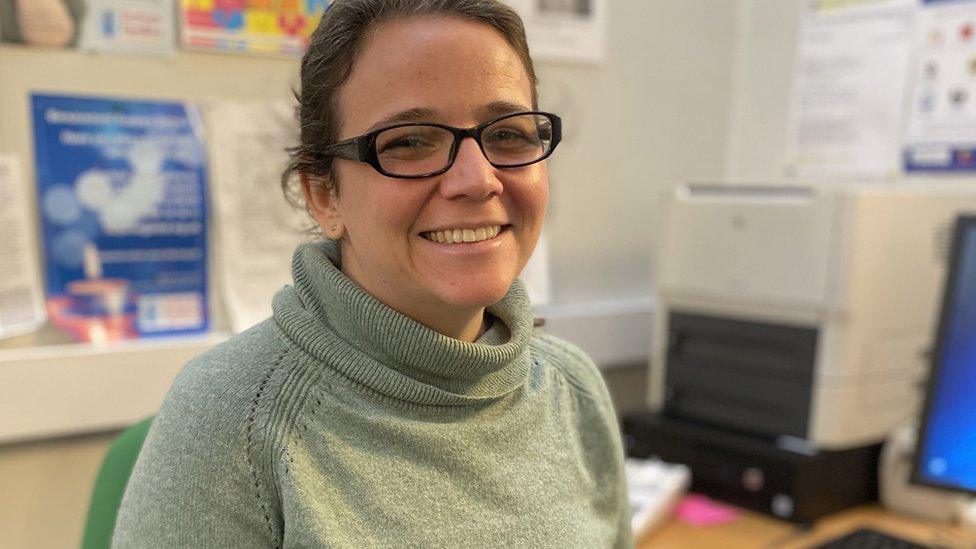
GP Marianne McCallum says there is nothing "unique or terrible" about the area
Ferguslie Park has scored low for health outcomes on the previous two SIMD results.
But local GP Marianne McCallum says there is nothing "unique or terrible" about the area.
"I am seeing people with heart disease and strokes in their 40s and 50s as opposed to my colleagues in wealthy areas who see that in the 60s and 70s," she says.
"I think it is similar to other areas experiencing the same levels of poverty across Scotland.
"I think there is an issue with people looking at this data zone and stigmatising an entire area, when actually the problem is not Ferguslie Park, the problem is the inequality we have in our society."
'One treble we don't want to win'
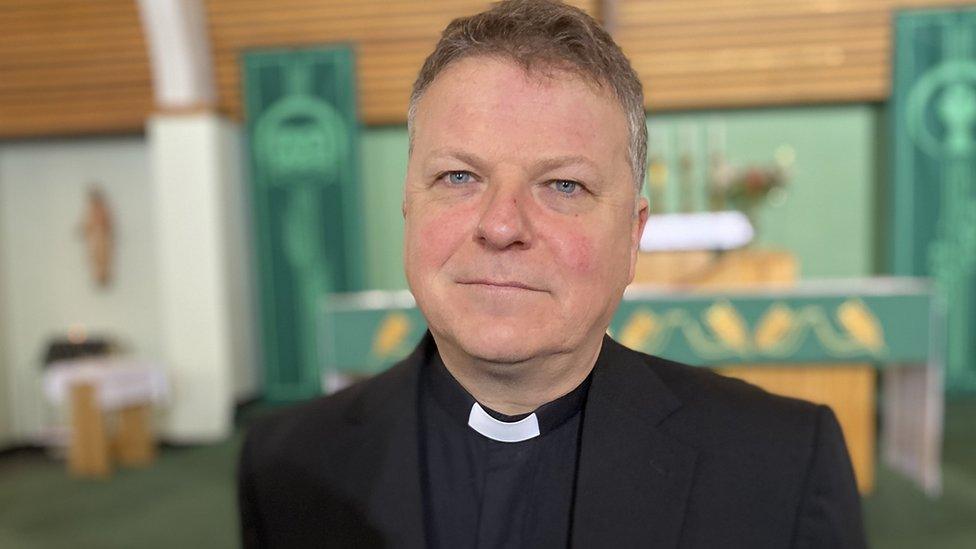
Bishop of Paisley John Keenan lives in the area
Renfrewshire Council says it has funded efforts to engage and enrich the community, including new schools, diversionary activities aimed at curbing youth disorder and targeted support for the worst-hit families.
The council said its Street Stuff programme - which provides young people with healthy meals and sports activities - had led to a 75% reduction in youth disorder since its introduction in 2009.
Locals hope that growing community activism and investment will be enough to avoid being named the most deprived area for the third time.
"This is one treble that we really don't want to win," says Roman Catholic Bishop of Paisley, John Keenan, who lives in the area.
"To the eye it doesn't seem to be so bad. They are probably in some senses legacy statistics, from the closure of the car plant in Linwood and from the closure of heavy industries in Paisley.
"Ferguslie took a big hit then. A lot of people left and a lot of houses were demolished. The regeneration that has been going on for generations continues.
"I think the index gives you a snapshot of where we are just now.
"We feel in Ferguslie it maybe doesn't give such an indication of the seeds underground of generation.
"We hope that they are coming through, if not with the publication with these stats, certainly with years ahead."
- Published19 September 2019
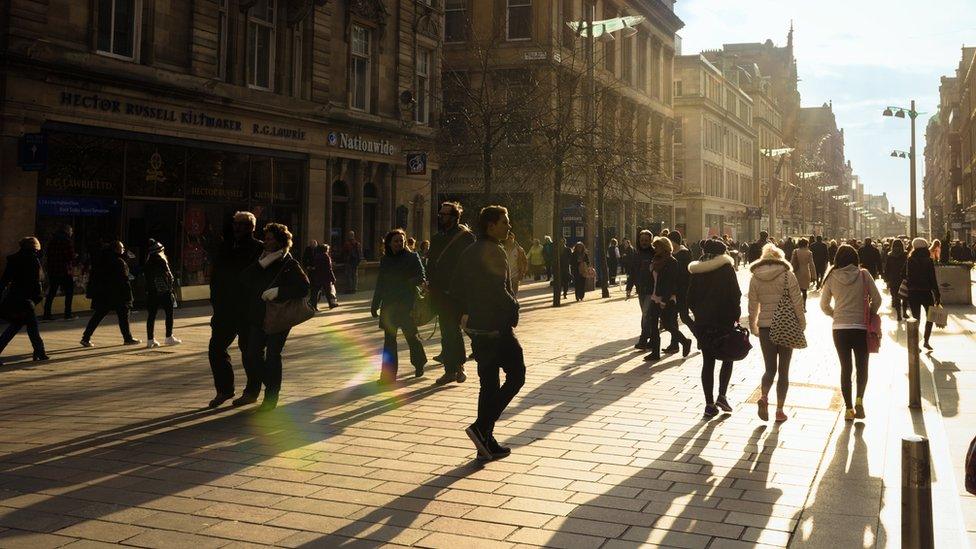
- Published31 August 2016
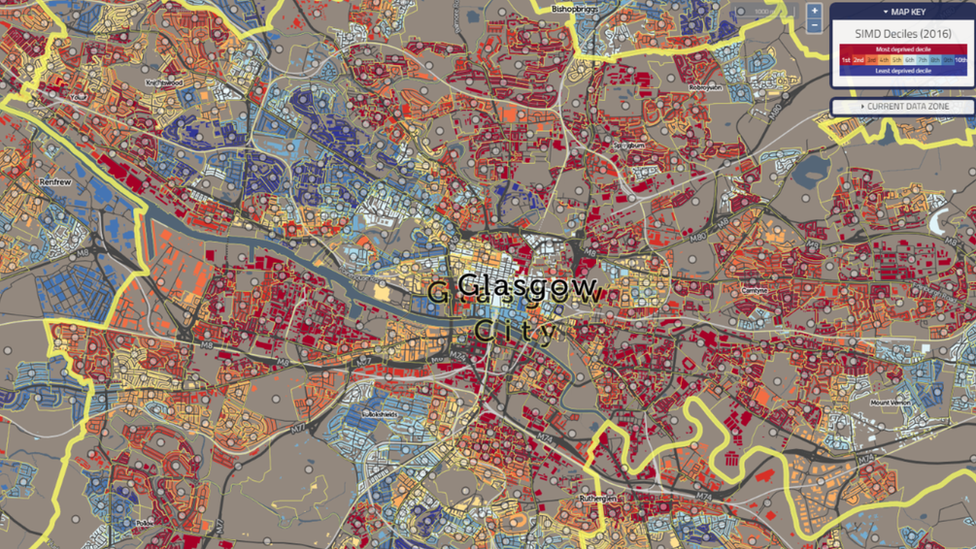
- Published1 September 2016
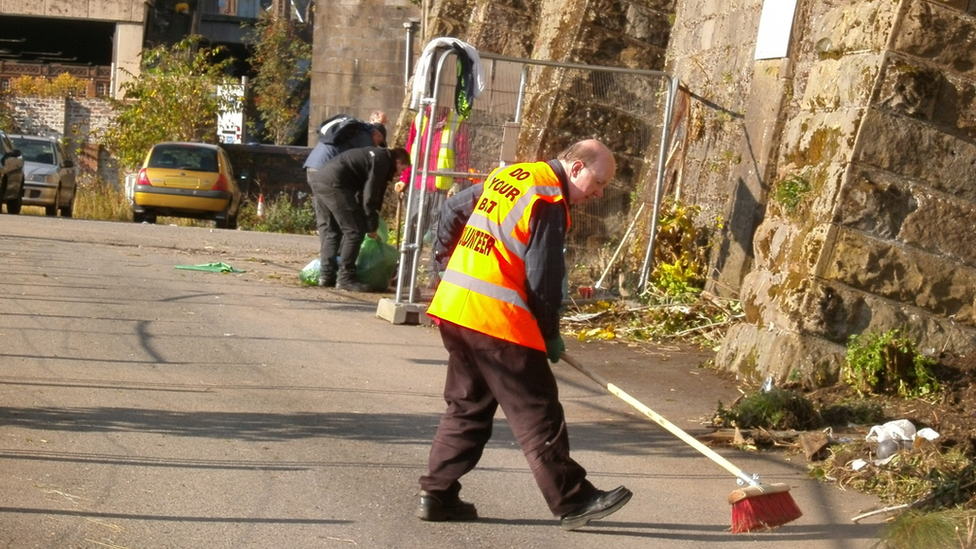
- Published31 August 2016
